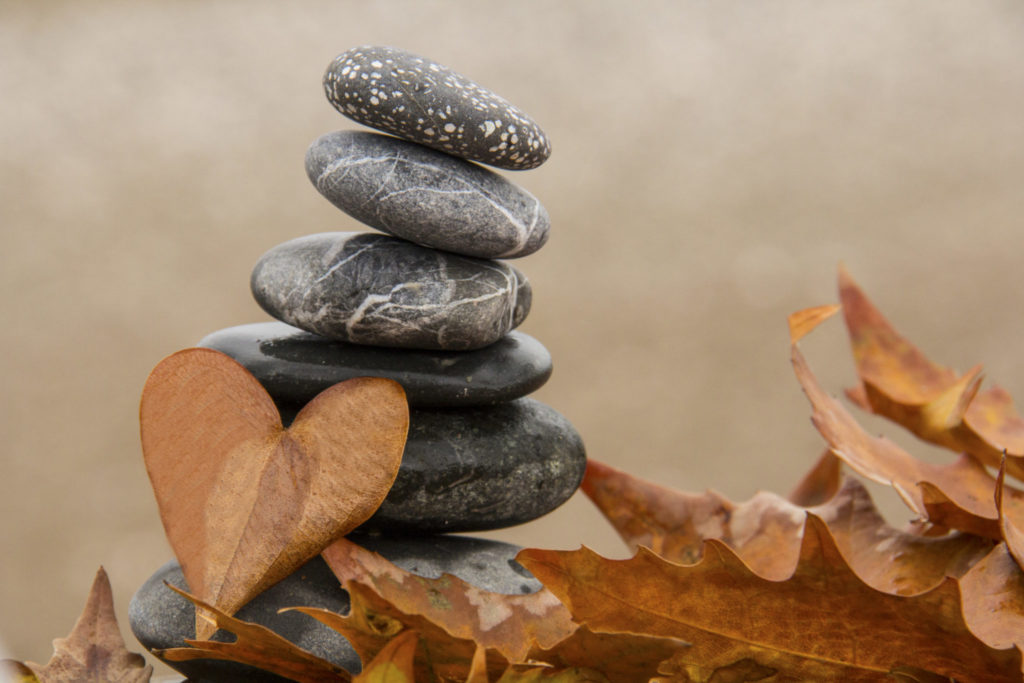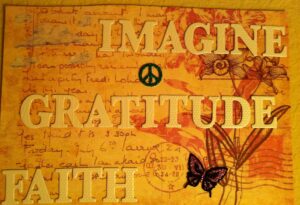Gratitude and grief are two seemingly contradictory emotions that often coexist in our lives. In times of loss and heartache, it may feel impossible to find anything to be grateful for. Yet, many individuals have discovered that practicing gratitude can be a powerful tool in navigating the grieving process and finding hope amidst the pain.
In this article, we will delve into the connection between grief and gratitude, exploring how they can coexist and the healing power that gratitude can bring.
The connection between grief and gratitude: How they can coexist
Grief and gratitude are not mutually exclusive; they can coexist and even intertwine. When we experience grief, we are acknowledging the pain and sadness of loss. It is a natural response to feel overwhelmed by these emotions and to focus solely on our sorrow.
However, it is important to recognize that amidst the despair, there can still be moments of gratitude. It might be the support of loved ones, the memories we cherish, or the lessons we learn through the experience of loss.
Grief and gratitude both stem from a place of deep emotion within us. They are complex and intertwined, and it is possible to hold space for both. By allowing ourselves to feel gratitude, even in the midst of grief, we open ourselves up to a wider range of emotions and a more holistic experience of healing.
The healing power of gratitude in the grieving process
Gratitude has the power to transform our perspective and provide solace during the grieving process. When we consciously choose to focus on what we are grateful for, we shift our attention away from the pain and towards the blessings that still exist in our lives. This shift in mindset can bring a sense of peace and comfort, even in the darkest of times.
Research has shown that practicing gratitude can have numerous physical and psychological benefits. It reduces stress, improves sleep, and enhances overall well-being.
In the context of grief, gratitude can serve as a means of self-care and a way to honor the memory of our loved ones. It allows us to find moments of joy and beauty amidst the sorrow, reminding us that life still holds meaning and purpose.
Quotes that explore the relationship between grief and gratitude
“Gratitude makes sense of our past, brings peace for today, and creates a vision for tomorrow.” – Melody Beattie
“Grief can be the garden of compassion. If you keep your heart open through everything, your pain can become your greatest ally in your life’s search for love and wisdom.” – Rumi
“Gratitude turns what we have into enough and more. It turns denial into acceptance, chaos into order, confusion into clarity… it makes sense of our past, brings peace for today, and creates a vision for tomorrow.” – Melody Beattie
These quotes beautifully capture the essence of the connection between grief and gratitude. They remind us that gratitude has the power to transform our pain into something meaningful and to guide us towards a path of healing and hope.
Practicing gratitude during times of grief: Tips and techniques
Practicing gratitude during times of grief may initially feel challenging, but with time and intention, it can become a valuable tool in the healing process. Here are some tips and techniques to cultivate gratitude amidst grief.
Start out small
Begin by acknowledging the simple things you are grateful for each day. It could be the warmth of the sun, a supportive friend, or a comforting cup of tea. By focusing on these small blessings, you gradually expand your capacity for gratitude.
The amazing thing about recovering from grief is how it stresses the significance of praising even the smallest of accomplishments. For someone struggling with depression, completing a load of laundry may feel like a major achievement.
Picking up the pen to make an entry in a gratitude journal, even if you have no idea what to write, is something to be celebrated. Setting fair expectations for oneself is an important part of maintaining calm in this age of great anticipation.
Some people have trouble grasping concepts that others find simple. Be thankful not only for the major things in life, but also for the little ones.
Keep a gratitude journal
Set aside a few minutes each day to write down three things you are grateful for. This practice helps shift your attention away from the pain and towards the positive aspects of your life.
The neuronal pathway in our brains may be retrained to notice the positives in life rather than the problems by making a daily gratitude list or journaling. Making thankfulness an integral part of one’s daily routine ensures that it is readily available whenever it is needed, allowing one to better deal with hardship and “gratitude repertoire” circumstances when they happen.
Those just starting out on their own appreciation journey may find Sarah Ban Breathnach’s best-selling book, Simple Abundance, helpful.
Express gratitude to others
Take the time to express your gratitude to those who have supported you during your grief. It could be a heartfelt thank-you note or a simple act of kindness. By appreciating the love and support around you, you create a sense of connection and gratitude.
Gratitude is more than just acknowledging our good fortune. In reality, it includes the powerful experience of seeing the gratitude of others, especially in times of difficulty. That has the potential to be extremely motivating as well as powerful.
Share it with others
Gratefulness tends to spread. You may spread your appreciation by calling a loved one, writing a message, helping others, or posting an uplifting article online.
I hold the firm conviction that each individual possesses boundless potential and value. Take charge of your life energy, choose one thing you can do today to show appreciation, and do it. It may be as easy as just being grateful to be alive, and that would be a wonderful beginning.
Personal stories of individuals who have found solace
Grief is a deeply personal journey, and each individual navigates it in their own way. Here are some inspiring personal stories of individuals who have found solace in gratitude during their grief:
Sarah’s Story: After losing her mother to cancer, Sarah struggled to find meaning in her grief. Through practicing gratitude, she started to cherish the memories she had with her mother and appreciate the love they shared. This shift in perspective allowed her to find solace in her grief and honor her mother’s legacy.
Mark’s Story: Mark lost his job and went through a period of financial instability, which compounded his feelings of grief after the death of his father. Through gratitude, he discovered the importance of the relationships in his life and the support he received from friends and family. This realization brought him a sense of gratitude and hope amidst his grief.
My Personal Story: I lost my father to a heart attack when I was 27. He was only 54 and so full of life. Years later I was married and had 3 daughters of my own. I became so grateful for the life lessons he taught me. He felt education was very important to achieve your goals. I would pass those principals down to my daughters and they have passed them down to my grandchildren.
Although I regret that he didn’t live to see me reach my full potential, or that of his grandchildren and great grandchildren, I am so grateful for the seeds he planted in my life.
These personal stories highlight the transformative power of gratitude in the grieving process. They serve as a reminder that even in the darkest times, there is always a glimmer of light to be found.
Grief support resources that incorporate gratitude
Incorporating gratitude into the grief journey can be greatly supported by various resources. Here are some grief support resources that incorporate gratitude:
Grief support groups: Joining a grief support group can provide a safe space to share your experiences and learn from others who are also navigating grief. These groups often incorporate practices of gratitude and offer tools for finding hope amidst the pain.
Therapy and counseling: Seeking professional help through therapy or counseling can be immensely beneficial in processing grief. Many therapists incorporate gratitude exercises as a part of the healing process, helping individuals find gratitude and meaning in their grief.
How to cultivate a gratitude practice while navigating grief
Cultivating a gratitude practice while navigating grief requires patience, self-compassion, and a willingness to embrace the duality of emotions. Here are some strategies to help you cultivate gratitude during this challenging time:
Practice mindfulness: Engage in daily mindfulness exercises to bring yourself into the present moment and become aware of the blessings that still exist in your life.
Create a gratitude ritual: Establish a daily ritual where you take a few moments to reflect on what you are grateful for. It could be a morning gratitude meditation or an evening gratitude journaling practice. Find a routine that works for you and commit to it.
Seek support: Surround yourself with loved ones who understand the importance of gratitude in your healing journey. Share your experiences and seek their support and encouragement.
The role of gratitude in finding hope and meaning after loss
Grief can often leave us feeling lost and devoid of hope. However, gratitude has the power to bring us back to a place of hope and meaning.
By practicing gratitude, we shift our focus away from what we have lost to what we still have. We begin to see the beauty in life, even amidst the pain, and find the strength to move forward.
Gratitude allows us to honor the memory of our loved ones by embracing the gifts they have given us. It reminds us that our journey is not over and that there is still hope for a meaningful and fulfilling life, even after loss.
Conclusion: Embracing the duality of grief and gratitude
Grief and gratitude may seem like opposing emotions, but they are intricately intertwined. Embracing the duality of these emotions allows us to navigate the grieving process with greater resilience and find hope amidst the heartache.
As we cultivate gratitude during times of grief, we discover that it is not about denying our pain but rather expanding our capacity for healing and growth. So, let us honor our grief and embrace the power of gratitude as we journey from heartache to hope.
If you or someone you know is grieving, consider incorporating gratitude into your healing journey. Embrace the power of gratitude to find solace, strength, and hope amidst the pain. Start by practicing gratitude daily and seeking support from grief resources that incorporate gratitude.
Remember, you are not alone in this journey, and there is always room for both grief and gratitude in your heart.
Related article: Start Your Day with Gratitude for a Positive Mindset




No comments! Be the first commenter?